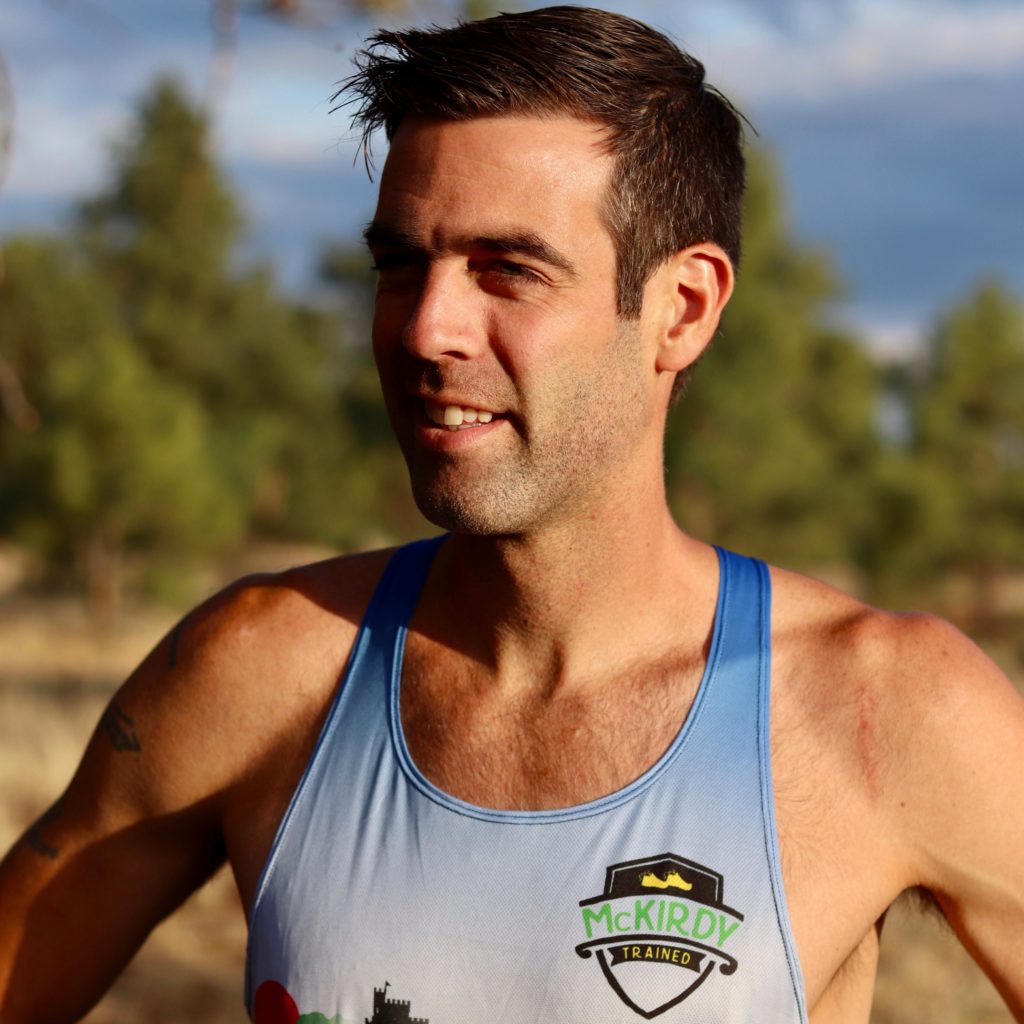Interview: James McKirdy of McKirdy Trained
|
I recently sat down with James McKirdy, founder and head coach of McKirdy Trained, to talk about how he got into coaching, why he launched his company, what he looks for when hiring a new coach, and more.
How did you get into coaching?
I found myself volunteering at a local high school during one of the darkest moments of my life. I reached out to my old coach and asked if I could help out and he said, “of course.” Through my pain I found joy.
When did you launch McKirdy Trained and what was the impetus behind starting the company?
Oddly enough, I was in another dark place mentally. I was out of work, depressed, anxious…and really hurting emotionally. But I still had bills to pay. So I reached out to a few folks locally who I thought might want guidance. I was a personal trainer for 13 years. I had coached athletes of all ability at that point. I figured I could give this a shot. That was late fall of 2015…January 6th, 2016 was our first official day as a business, me and 10-15 athletes.
How can personal coaching benefit an athlete?
For almost 15 years now I have had a coach guiding me in some way or another. I have seen firsthand how having an outside eye will help an athlete to success but also [help him or her] through the dark times that will eventually come. The workouts aren’t what are most important—we can get that from any book or magazine—but it’s the placement of the workouts, the knowing how to scale things up or down, he guidance of when to shut things down, and the overall relationship building that is really important.
What types of athletes are a good fit for McKirdy Trained coaching?
From the start, my vision for the business was to serve whoever wanted help. I don’t care if an athlete is a run/walker or and Olympic Trials-caliber athlete—the one aspect I do feel we need is someone who wants to be coached and led. I think any coach in any business would agree that as long as the athlete wants the coaching and is willing to listen, we can help. If you simply just want to do your own thing as you have always done, then we aren’t for you. One aspect that we [as McKirdy Trained] will not take part in is pre-planned programs. Honestly, we could make a killing with selling plans that are pre-made, but I feel that isn’t coaching. I want our athletes to develop a relationship with their coach and you can’t get that from a pre-made plan.
What do you look for when bringing a new coach onboard?
Coaches come from all shapes and sizes, all backgrounds. We do have some of the best athletes in the nation leading the way, but we also have coaches who started as 4-hour marathoners who have learned what it means to develop over years—to fail in a way that the general population will also fail. So regardless of ability, talent, or even credentials, I am looking for a coach who has years of experience in the sport, who genuinely cares and wants to lead, and who can communicate their knowledge in a meaningful way so that the athlete is able to understand.
How do you match an interested athlete with the right coach?
Personality is key! Matching the athlete up with the right coach is an art and it’s about getting to know the athlete a little bit to see what they hope to receive out of coaching. As I get to know the coaches more, I also understand what type of athlete they respond best to and it does get a bit easier [to match them with the right athlete]. We have the largest coaching service in the country and the most variety of coaches around. That being said, with 18 coaches we still aren’t everyone’s cup of tea, but that doesn’t meant there isn’t a coach out there that does match them.
What are the biggest keys to making a remote coaching situation successful?
We wouldn’t be here without the service of VDOT—and that’s not a paid plug, either. I have been with VDOT since the beginning and the folks there are tremendous in terms of customer service, development, and overall purpose behind the app. That being said, we have grown—and quickly—but one aspect that I hold true to is that we cap our coaches so they don’t feel overwhelmed with how many athletes they serve. I constantly check in with them to make sure they feel they are at an athlete load that makes sense [for them]. Whether you are in business for yourself, or own a business like ours, I think it’s important to recognize what you can truly handle and adhere to that concept without exception.
What brings you the most fulfillment as a coach?
Fulfillment comes in so many ways, from an athlete achieving their biggest goal—the one they never thought possible—to the athlete who just ran a mile for the first time non-stop and now sees the stepping stones to bigger runs. What I personally want is to help an athlete experience that they are more than running itself, that no matter what, I will support them and help them make the most of themselves athletically if they let me—no matter who they are or what their background.